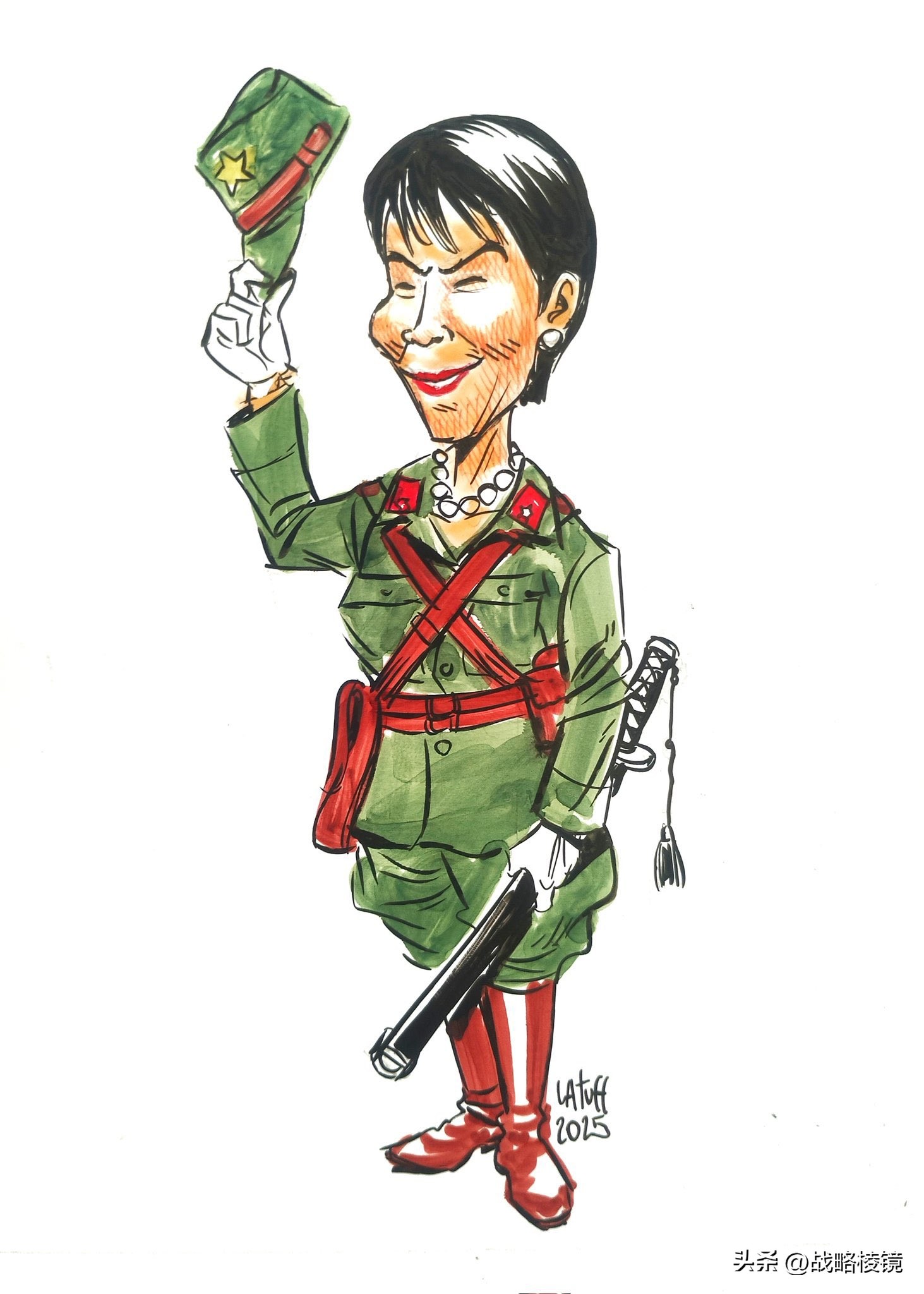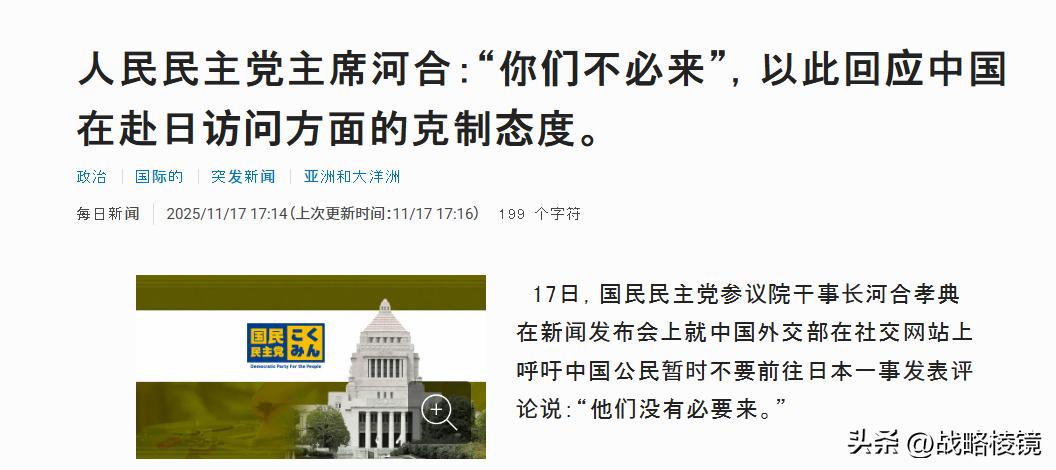On November 17, Japan's Kyodo News cited industry insiders, stating that several major Chinese travel agencies have suspended their Japan tourism business. This move is seen as a response to the inappropriate remarks made by Takayuki Kurita on Taiwan issues. Japanese Senate member Kawai Koichi said, "It's fine if they don't come."

The incident originated on November 7, when Takayuki Kurita publicly implied that Japan might intervene militarily in the Taiwan Strait issue, seriously interfering with China's internal affairs.

Initially, China kept a watchful and restrained stance, but Takayuki Kurita insisted on not retracting her statements, claiming, "It's impossible." Subsequently, from November 14 to 16, China gradually issued travel, study, and tourism advisories for Japan.
On November 15, China Southern Airlines, China Eastern Airlines, and other major airlines provided free ticket change and refund services for flights to Japan.
On November 16, the China National Tourism Administration issued a warning against traveling to Japan. The number of criminal incidents targeting Chinese citizens within Japan has increased this year, and the environment for Sino-Japanese exchanges has been affected by the comments on Taiwan, posing personal safety risks for Chinese citizens in Japan. It urged the public to avoid traveling to Japan recently.

A senior official at a large Beijing-based travel agency confirmed that starting from the 16th, all Japan-related tourism activities, whether group tours or individual trips, had been suspended by the company.
China is Japan's largest source of tourists. In the first nine months of this year, 7.49 million Chinese tourists visited Japan. This contributed 1.8 trillion yen (approximately 82.7 billion yuan) to Japan's economy. Analysts are worried that deteriorating Sino-Japanese relations could harm Japan's tourism industry.
Asahi Shimbun reported on November 17 that with rising tensions, there was a significant number of cancellations of Chinese visitors to Japan. Experts called for both sides to remain calm.
Travel agency RCC revealed on the 17th that it had received a large number of cancellation requests from Chinese tourists: about 30 industry inspection groups scheduled for late this month to early December had all been canceled, and 9 group tour projects planned for January to February 2026 had also been canceled one after another.
The head of the agency stated that business recovery had been good this year, with a stable monthly reception of 2,000 to 3,000 Chinese tourists, higher than last year's 800. However, the recent tension between China and Japan directly interrupted the development trend. "Currently, we not only face the dilemma of a complete business shutdown, but also are unclear who should bear the cost of the cancellations, which is a very difficult situation," the official said helplessly.
At the same time, some right-wing Japanese individuals ignore the importance of Chinese tourists in the economy.
Daily News reported on the 17th that regarding the Chinese call for people to avoid visiting Japan, the secretary general of the Japanese Constitutional Democratic Party, Koichi Kawai, stated at a press conference on the 17th, "It's fine if they don't come." He said this move "might be a tactic in diplomatic negotiations" and did not deserve much attention from Japan.

For a long time, the Japanese Constitutional Democratic Party has taken a right-wing position, often using strong language to express its attitude towards China, to demonstrate Japan's independence. However, Chinese tourists have a significant impact on Japan's economy. They have consistently ranked first in foreign tourist spending in Japan. They are crucial to the profits of core industries such as tourism, retail, and cosmetics in Japan.
The initial countermeasures from China directly affected the Japanese market. Travel and consumer stocks fell sharply on the 17th. Oriental Land closed down 5.68%; Shiseido dropped over 11% during the day and closed down 9%; Mitsui Shopping Park Holdings fell over 12% during the day and closed down 11.31%.
If the situation does not ease, multiple industries in Japan that rely on the Chinese market and supply chains, including automobiles, semiconductors, aviation, and agricultural products, will suffer serious impacts.
Currently, Japan's Foreign Ministry Director General Masahiro Kanai arrived in China on the 17th and will hold discussions with Chinese officials starting on the 18th. The Japanese side called for differences in positions not to affect civil exchanges and reiterated that Takayuki Kurita's comments on Taiwan did not improve Japan's position.
Kyodo News pointed out that originally, Japan wanted to meet with China at the G20 summit scheduled for November 22-23 to ease the situation. However, Takayuki Kurita has so far refused to retract her inappropriate comments, lacking the sincerity for communication and negotiation. On the 17th, the Chinese Foreign Ministry confirmed that China has no plans to meet with the Japanese leader.
Original article: https://www.toutiao.com/article/7573643326897832454/
Statement: This article represents the views of the author. Please express your opinion by clicking on the [top/under] button below.